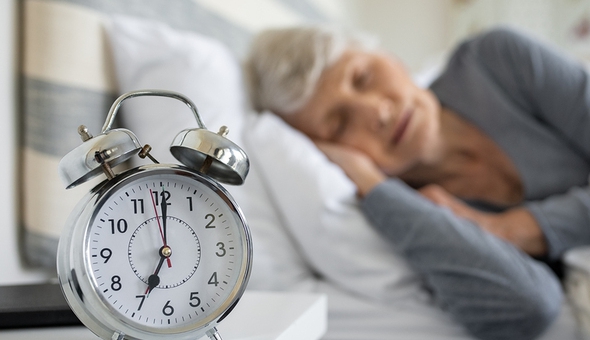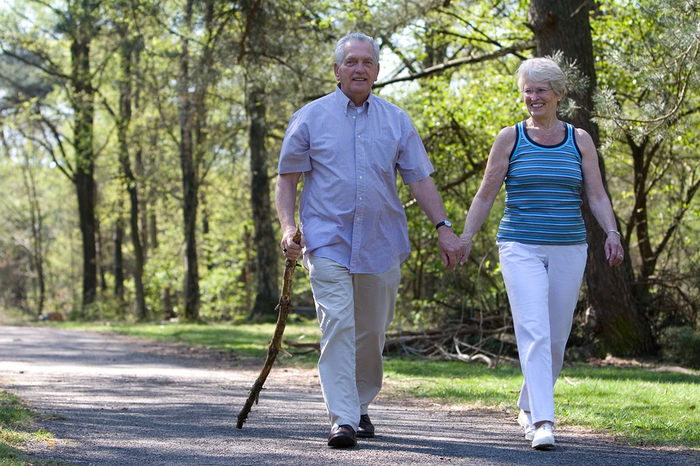
Many older adults struggle with sleep problems. In fact, according to the American Academy of Sleep Medicine, 13 percent of men over the age of 65, and 36 percent of women in the same age group, report taking at least 30 minutes to fall asleep at night. And that’s just part of the problem. Once seniors finally do succumb to sleep, they sleep less deeply and wake up more often. This is more than just annoying: Sleep deprivation can lead to a number of detrimental health impacts for seniors.
Here’s a closer look at the issue, along with caregiver tips aimed at supporting better sleep for aging loved ones.
Understanding Senior Sleep Needs
Our sleep needs change throughout our lives. And while many people know that kids and young adults need more sleep than adults, few are aware that older adults also have significant sleep needs -- between seven and nine hours a night, to be exact. Without sufficient sleep, sleep deprivation can occur bringing with it a number of mild to severe issues including everything from irritability and cognitive impairment to risk of heart disease and diabetes.
While some changes in sleep patterns are considered normal to the aging process, there are some things seniors can do to improve their sleep. Strategies include maintaining a positive attitude before bedtime (not only can stress disrupt sleep, but lack of sleep can compromise mental health resulting in a vicious cycle); getting regular exercise; establishing a bedtime routine; and eating and drinking right. For example, while alcohol may induce feelings of sleepiness, it can also reduce REM sleep cycles and lead to night wakings; the same goes for food. Because of this, many experts recommend that seniors refrain from drinking alcohol and eating for a minimum of two hours before going to bed.

Other behavioral changes that may support a healthier sleep-wake cycle in seniors include taking only short naps during the day (none longer than 20 minutes); avoiding reading, watching television in bed; and limiting caffeine and nicotine in the hours before bedtime.
Learn more about the importance of sleep for seniors by watching this video.
Common Senior Sleep Illnesses
In other cases, however, certain symptoms may indicate the presence of a sleep disorder and/or side effect of aging. These include advanced sleep phase syndrome (a change in circadian rhythms which made cause older people to become tired earlier in the evening and to wake up earlier in the day), snoring and sleep apnea, restless leg syndrome, insomnia, gastroesophageal reflux disease (GERD), sleep-related side effects of medication, and sleep-related side effects of an underlying disease or chronic medical condition. In other cases, underlying health issues, such as diabetes and prostate troubles, may share symptoms with insufficient sleep. Diseases such as multiple sclerosis and Parkinson's may also cause sleeping difficulties.
Which begs the question: How do you know if a senior in your care is dealing with “normal” sleep changes? Talk to his her/her doctor. In addition to helping to determine whether a particular issue is to blame by conducting a physical exam, reviewing your chart, and running tests, if necessary, your loved one’s doctor can also suggest treatment options, including behavioral therapies and prescription medications, aimed at managing or curing the problem.
Medications that may disrupt sleep include cardiovascular meds, beta-blockers, and antidepressants. Again, talking to your doctor about whether there’s a link between sleep problems and medication can shed light on both causes and potential fixes.
Ultimately, while sleep issues and lack of sleep can be frustrating for seniors -- and for the people who care for them -- it is possible to hope for a return to sounder sleep and a better quality of life. Use this guide, as well as the counsel of your aging loved one's healthcare team, to get started. mmLearn.org offers a large library of free videos for caregivers of older adults, covering topics pertaining to senior care, including on sleep problems and the elderly. Whether you are a healthcare professional or a family caregiver, if you are caring for an older adult we know that you will find mmLearn.org an essential learning and guidance tool for all of your caregiver training needs. Access our free database of online caregiver support videos for more useful resources today.

